Thanks for joining uspublished at 17:52 BST 26 May 2022
We're about to wrap up our live coverage.
Your writers today were Becky Morton, James FitzGerald, Adam Durbin and Marie Jackson.
The page was edited by Chris Giles, Emma Owen and Claire Heald.
Chancellor Rishi Sunak has set out measures to address the rising cost of living, as the government seeks to draw a line under Partygate
One-off payments of different amounts will be given to the most vulnerable - the elderly, those with disabilities, and those with the lowest incomes
All households will receive a £400 discount on energy bills
Eight million of the lowest income families will also get a one-off payment of £650, Sunak says
He confirms a temporary windfall tax on oil and gas giants to fund the payments - a move called for by the Lib Dems and Labour
There will be a one-off disability cost of living payment of £150, and pensioners will get £300
The UK's energy regulator Ofgem says typical household energy bills are set to rise by £800 in October, to £2,800 a year
Edited by Chris Giles
We're about to wrap up our live coverage.
Your writers today were Becky Morton, James FitzGerald, Adam Durbin and Marie Jackson.
The page was edited by Chris Giles, Emma Owen and Claire Heald.
Chancellor announces energy bill discounts of £400 this autumn
It's been another busy day in Westminster and we're ending our live coverage shortly. Here are the key points from Chancellor Rishi Sunak's announcement of a package of measures intended to ease the impact of the rising cost of living:
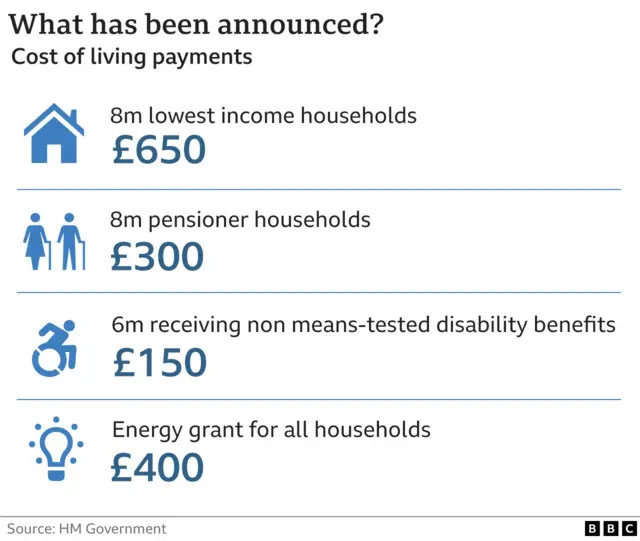
The majority of the measures announced by the chancellor today will apply to people across the UK.
But there are a few exceptions:
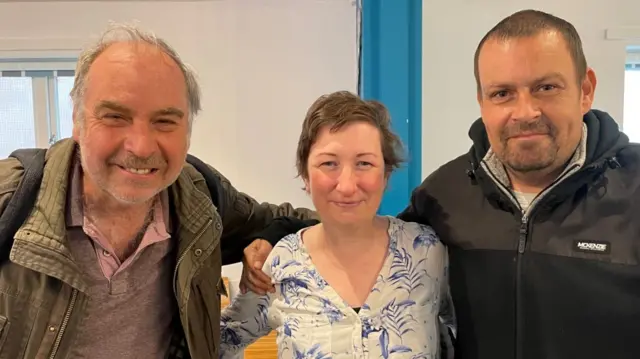
An emotional Lisa Bradley welcomes the extra help, as do Raymond Graves, left, and Lee Ingham
At the weekly job club in Handforth, Cheshire, the news of government help is met with much emotion.
Lisa Bradley breaks down in tears. “It’s such a massive relief,” she says.
The mum of two grown-up children has been struggling for months and losing sleep over money. She's been turning off appliances, including the fire alarm, to save pennies, because her meter swallows up what used to last her weeks.
Lee feels the government's package could not have come at a better time. “There’s no extra in the pot, you’re scratching the barrel,” he says.
Raymond is not eligible for more than the £400 payment all households will receive but he doesn't mind.
“I’m pleased they’re not just doing a blanket £500 on everybody, they’re actually targeting those who need it and it is related to energy bills as well, I think that’s good.”
“I’ll still need to scrimp and save,” Lisa adds. “Even though it’s a fantastic amount I’m so aware how quickly it can slip through your fingers again.”
BBC Political Editor Chris Mason has been speaking to Chancellor Rishi Sunak about his plans to charge a windfall tax on oil and gas giants.
Sunak says the new energy profits levy is a "very specific" tax which contains "generous" investment incentives for energy firms.
Challenged as to why he's reluctant to use the phrase windfall tax, he says "people can call it what they want", adding other similar proposals for a one-off tax are "blunt instruments".
Watch their exchange below.
Rishi Sunak on why he doesn't use windfall tax phrase
 Image source, Getty Creative/Martin Prescott
Image source, Getty Creative/Martin PrescottMillions of households will receive discounts on their energy bills
The package of government support aimed at tackling spiralling living costs is going down well with consumer experts.
The move is a "life raft for the millions of people struggling to keep their heads above water" says Citizens Advice.
And the announcements are "more generous than expected" Martin Lewis, the founder of the MoneySavingExpert website, says on Twitter, external.
But, as we've been reporting, some campaigners want the government to take more action.
Debt charity StepChange says it's important that supporting a wide number of households does not dilute the assistance for those in greatest need.
And the chancellor is "kidding himself" if he thinks the measures can prevent people suffering long-term financial setbacks, the Child Poverty Action Group says.

 Kevin Peachey
Kevin Peachey
Personal finance correspondent
The energy price cap in England, Wales and Scotland is actually a cap on the price of each unit of energy we use, and the standing charge.
Regulator Ofgem then calculates what that means for a household using a typical amount of gas and electricity.
Earlier this week, its boss, Jonathan Brearley, said the regulator’s current estimate for that typical household bill in October would be £2,800 a year – a rise of £800 compared to now.
If you use a comparatively high level of energy in your home then you will pay more than that “typical” bill; if you use less, then you will pay less.
After the chancellor was told of the size of the financial hole these bills could create, he could finalise the measures that might help people get out of it.
Andrew Plant
BBC Points West reporter, in Bristol
After the chancellor’s announcement of extra financial help I spoke to Colette Hedges, who is partially sighted and has cerebral palsy. That means she receives a disability living allowance.
She said she is struggling to pay her energy bills, which have reached £105 for electricity and £225 for gas, for a three-month period.
Collette says: "I’m paying it in dribs and drabs, not all at once. It’s a lot of money."
Reacting to the extra £150 one-off payment for people living with a disability, she adds: "That’s great. That’s really good. I keep trying to stay cheerful. That should really help."
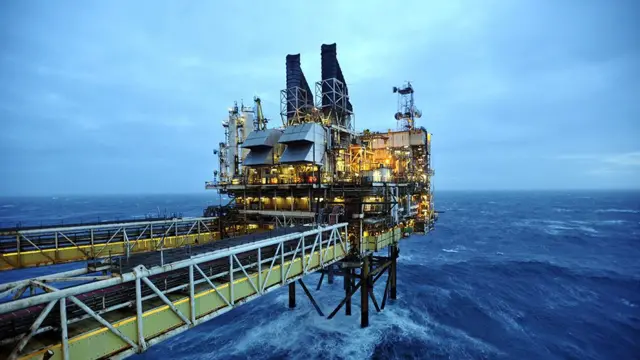 Image source, Getty Images
Image source, Getty ImagesThe move to impose a windfall tax on the profits of oil and gas firms is "a backward step" according to Offshore Energies UK, which represents the industry.
Chief executive Deirdre Michie says the new taxes will "drive away investors and so reduce UK energy production".
"That means less oil, less gas, and less renewables. It also makes it much harder for the UK to reach net zero by 2050," she argues.
Meanwhile, a spokesman for oil giant Shell, says the company has "consistently emphasised the importance of a stable environment for long-term investment".
However, he notes that the proposal for tax relief on investment in the UK "is a critical principle in the new levy".
Torsten Bell from the Resolution Foundation think tank has analysed who is going to benefit the most from the planned approach, as well as those who will see the least support sent their way.
He says the biggest winners are "poorer pensioner households with someone with a disability", as they will receive multiple points of help from the package.
However, he also notes that support for families with children will be more limited.
Bell explains this is because, as they spend more on energy, but the flat rate of support being offered will do less to cut their bills as a proportion.
He says there are still "things to quibble with" but overall describes the package as "big and very welcome indeed".
At the moment, energy providers are not generally trying to tempt new customers with cheap offers, although a few firms, including British Gas and EDF, are offering new fixed price deals to some existing customers, which may be worth considering.
People who are already on fixed deals are advised to stay put.
Otherwise, households are being encouraged to save money by improving energy efficiency.
The Energy Saving Trust says several small changes , externalcould help many people off-set some of the recent rises in energy costs.
You can read more about the support available to help with energy bills here.
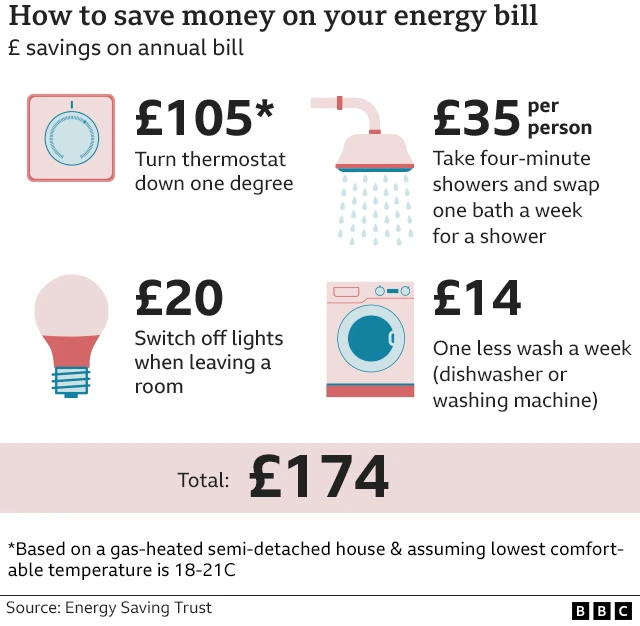
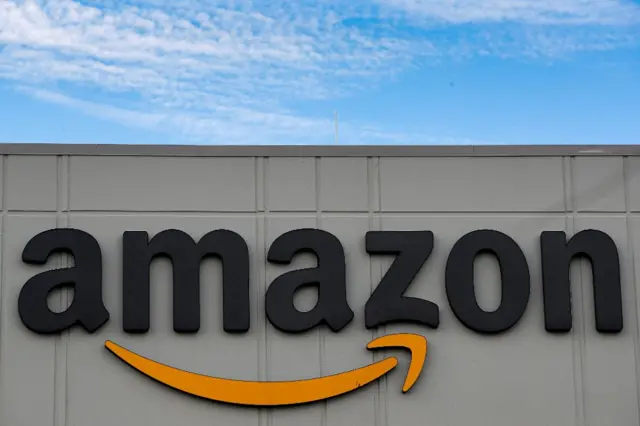 Image source, Getty Images
Image source, Getty ImagesDigital companies will be taxed “more fairly”, the chancellor says, after being asked in the Commons why big firms like Amazon were not included in the scope of his new windfall tax.
The one-off levy targets the profits of companies – like fuel firms – that have benefited from circumstances they were not responsible for.
SNP MP Patricia Gibson points out that the likes of Amazon made “billions” during the pandemic.
Rishi Sunak says the government worked to agree a "new international taxation agreement" for such firms – which will come into effect "over the coming months and years".
Andrew Plant
BBC Points West, in Bristol
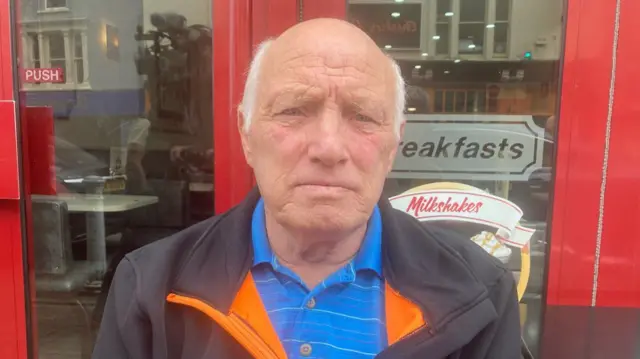
I’ve been speaking to people on East Street in the Bedminster area of Bristol today to see what they make of the government's new plan.
Alan Morgan is a pensioner who doesn’t think the money announced by the chancellor will be enough.
"I heard mention of £400, but they reckon the bill's going to go up by another £800. So £400 is not going to cut it," he says.
In order to pay his rising food and energy bills, he explains something will have to give, adding: "My car will probably have to go so that I can afford the food and the energy."
Alan says he’s even cut back on meeting friends outside.
He says he comes to this café because it’s the "only place I can afford to buy a coffee".
 Image source, Getty Images
Image source, Getty ImagesOne of the main announcements earlier was that all UK households will get a grant which will reduce energy bills by £400 from October.
Previously, the chancellor had said £200 would be knocked off everyone's energy bills, but would have to be paid back in instalments over five years.
Now, the discount has been doubled to £400 and he has cancelled the requirement to repay.
In other words, from October, everyone's energy bill will be reduced by £400.
In technical terms. it will apply directly for households in England, Scotland, and Wales. The equivalent funds should be given to Northern Ireland to distribute, although the way to do this has yet to be worked out, while the government is not functioning.
You can read more about the other support that's been announced here.
 Reality Check
Reality Check
The chancellor told MPs:
Quote MessageIn total the measures I’ve announced today provide support worth £15bn – combined with the plans we’ve already announced that means we are supporting families with the cost of living with £37bn
There are some questions about the £22bn valuation of the package announced previously.
For example, the £22bn included raising the point at which people have to start paying National Insurance which is a big tax cut, but not the amount taken away through other tax measures.
The Institute for Fiscal Studies points out that freezing income tax thresholds costs households about £3bn while the increase in the rate of National Insurance for employees and the self-employed costs them about £7bn, so suggests that at least £10bn should have been taken off the figure.
The £22bn figure (and thus the £37bn figure) also includes the freeze on alcohol duty, which the government says will save people £3bn over the next five years.
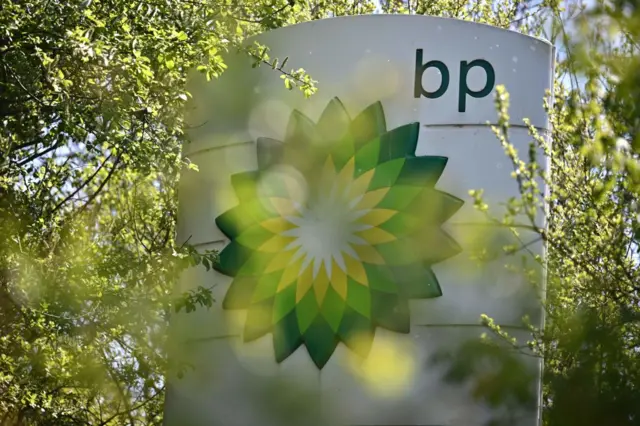 Image source, Getty Images
Image source, Getty ImagesA windfall tax was prompted by big profits for fuel companies
The Confederation of British Industry (CBI) has welcomed the government's efforts to tackle the cost-of-living issue - but it's expressed concern about the chancellor's new windfall tax.
Rain Newton-Smith said Rishi Sunak's package of help for households was the right thing to do.
But she added that the "open-ended nature" of the tax on fuel company profits could prove damaging to investment - which was necessary for energy security as well as reducing carbon emissions to tackle climate change.
The move "sends the wrong signal to the whole sector, against a backdrop of rising business taxation elsewhere," the CBI's chief economist said.
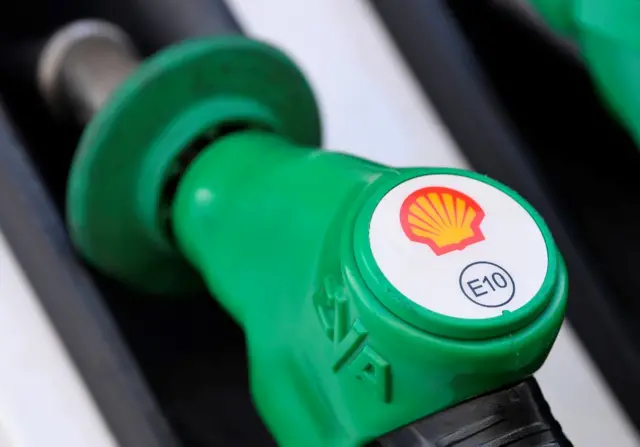 Image source, Reuters
Image source, ReutersThe move follows huge profit increases for firms including Shell
A windfall tax is a one-off levy targeting firms that have benefited from something they weren’t responsible for.
At the moment, that means fuel companies. BP and Shell have both reported big increases in profits as oil and gas prices surge around the world – partly driven by Russia’s invasion of Ukraine.
Ministers had previously rejected the idea of such a tax, which Labour, Liberal Democrats and the SNP were calling for.
The chancellor described the new tax as a 25% Energy Profits Levy. It could raise around £5bn.
Crucially, firms will not be allowed to reduce their tax liability by factoring in money spent on tasks like decommissioning North Sea oil platforms – something that’s helped them lower tax bills previously.
The support announced by the chancellor includes a mix of universal payments and other help targeted at specific groups.
Here's a quick summary of what has been announced - you can read about the measures in more detail here.
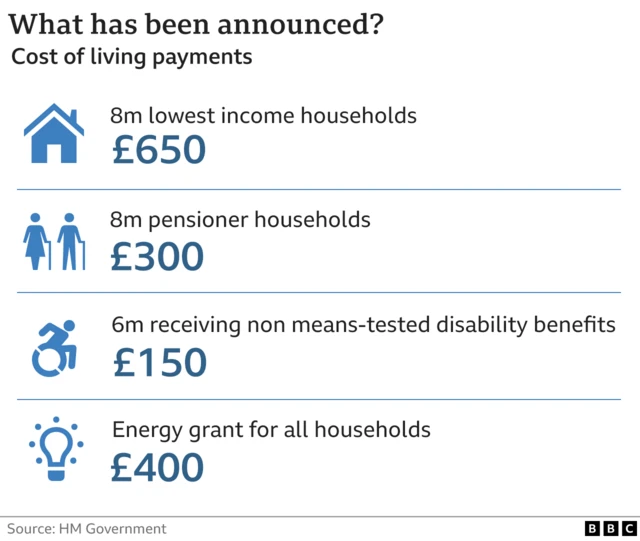
A nurse from Somerset has described her struggle to make ends meet in the run up to payday.
Lucy told Radio 5 Live she went to fill her car to get to work this morning, but had just £5 left to do so and won't get paid until tomorrow.
She says:
Quote MessageI was on the red light and that £5 did not even take me out of the red light. I'm just hoping that I make it to work - I'm not sure how I'm going to get back
Meanwhile, Justine from Surrey says she in a similar position of living from pay cheque to pay cheque, describing the cost of filling a car currently as "extortionate".
She says:
Quote MessageWe are turning off the hot water when we are not using it and everyone is using their towel a few extra times to reduce on the laundry.
Quote MessageI am also selling a few things out of my wardrobe as we are not going out so often. We are making lots and lots of little cutbacks in order to make the pennies last until the end of the month.